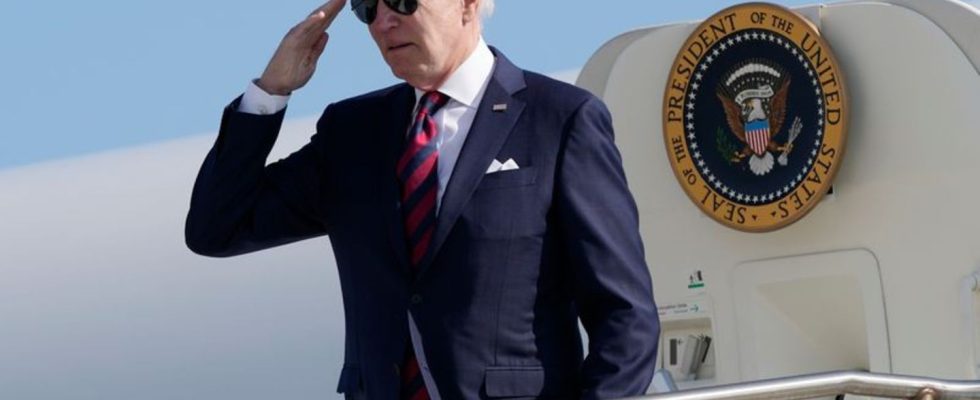USA
US debt dispute: Biden cancels visit to Australia
Because of the debt dispute, US President Joe Biden will not travel to Australia and Papua New Guinea after the G7 summit in Japan. photo
© Patrick Semansky/AP/dpa
A budget dispute with the Republicans is about to degenerate into an economic and financial crisis. Despite recent positive signs, the US President is now shortening an important trip.
US President Joe Biden has canceled planned visits to Australia and Papua New Guinea because of an impending budget crisis in the United States. The White House said Biden will return to the United States to attend meetings with congressional leaders as early as Sunday after the G7 summit in Japan concludes. He wants to ensure that Congress takes timely action to avert a default.
Biden spoke to Australian Prime Minister Anthony Albanese to let him know he was postponing his trip to Australia, the White House said. In addition, Biden invited him to an official state visit at a later date. The White House has also contacted the office of Papua New Guinea Prime Minister James Marape to update him on the changes.
sign of an approach
The background to this is that the US government is threatened with a default in a few days unless Biden’s government agrees with the Republicans in the US Congress on raising the debt ceiling. The argument has dragged on for months. After a high-level meeting in the White House, however, there had been signs of a rapprochement.
In the USA, the parliament sets a debt ceiling at irregular intervals and determines how much money the state can borrow. The debt ceiling is currently around 31.4 trillion US dollars (about 28.6 trillion euros). In the meantime, this debt ceiling has been reached and the US Treasury must tap into the capital reserves – because the US is now no longer allowed to take on any new debt to pay its bills. Biden and his Democrats need the Republicans in Congress to raise the debt ceiling. However, they are opposed to an increase without significant savings in certain government spending.
Danger of a global financial crisis
US Treasury Secretary Janet Yellen warned that a potential government default could occur as early as June 1st. A default by the world’s largest economy could trigger a global financial crisis and a severe economic downturn. The US would then no longer be able to pay most of its bills – millions of people could lose their jobs as a result. When a newly elected Republican majority in Congress delayed raising the debt ceiling in 2011, the US credit rating was downgraded for the only time in history.
Biden has tried to find a solution to the dispute in various rounds of negotiations in recent weeks – so far without success. Both he and Yellen warned of a “disaster” if the government actually defaulted.
G7 summit in uncertain times
In addition to the USA, the G7 countries also include Germany, France, Italy, Great Britain, Japan and Canada, as well as representatives of the European Union. The heads of state and government of the G7 group meet in Hiroshima from Friday to Sunday (May 19 to 21) for this year’s summit. In addition to the Russian war of aggression in Ukraine and the problems of the global economy, the summit should also deal with China’s role.
Afterwards, Biden had actually planned visits to the island nation of Papua New Guinea and Australia. In Sydney on May 24, he wanted to take part in the meeting of the so-called Quad Alliance together with the heads of government of Japan, India and Australia.

